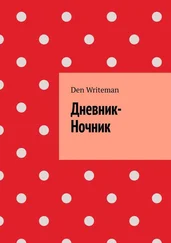He cut himself and after a ‘broad lastic’ he glanced round and, satisfied that we were alone, he muttered, ‘Harriet.’ Then he took a little piece of paper and stuck it on to his top lip to make the blood coagulate. Next he lifted his face to the ceiling and began scraping under his chin.
Thinking that I’d at last opened the door, I said, ‘What was she like?’ and he cut himself again. Why didn’t he just go to the barber’s?
Exasperated, he put down his razor and sent me out to play, and that was the end of the matter. But I didn’t let go. Every time we were alone together and I approached him he found some excuse to forestall any question. I had to know why it had been kept secret from me for so long but as I cleared my throat to ask, the drawbridge came down with a bang—it was a ‘no-go’ area. Nevertheless in the mess of half-formed thoughts and ideas lurking at the back of my head questions as yet unformed required answers.
A few mornings later, I was luxuriating in bed between sleep and full awareness, John not yet awake by my side, the beginning of a perfect day—when suddenly a roller blind in my head shot up, illuminating my mind. No questions or answers about my real mother but, more importantly, explanations! I knew now why the lady called Mother lavished so much love and attention on John: John was her son and I wasn’t. I now understood why Dad was reluctant to even discuss my real mother: it would have been extremely tactless even to mention her name in front of Mother. His life began again when he married Florrie Ashton. The discovery also clarified the three sets of grandparents—the Staceys, the Ashtons and the Sykes—and here was a troubling thought: would I have to give up the Ashtons for my own kin and join Vernon at Grandma Stacey’s? I shuddered. Grandma Ashton must have known about me for years but she’d always treated me with kindness and affection as John’s best friend. It also made it clear why many people regarded me as an adoption gone wrong—a puzzling thought, but now I knew the reason I was strangely comforted.
Once when Mother was filling in a form to enrol John in something or other, John was at her elbow when she filled in ‘name of applicant’ and wrote ‘John Stanley Sykes’.
‘Who’s Stanley?’ he asked and she told him that Uncle Stanley was her brother who was killed at Mons during the Great War.
She said that most people had a middle name and some people had several names but they were mostly royalty. When she saw that John was still a little perplexed she told him that Vernon had three names as well, Vernon Wilson Sykes—Vernon after his father and Wilson the family name. Apparently when he asked what my middle name was she said, ‘He hasn’t got one’, but with my newly acquired knowledge I knew the reason: all the relatives had been used up and there was no one left for me.
Some days later when John told me all this he said that he didn’t think this was fair, and if I wanted to call myself ‘Eric Stanley Sykes’ he was more than willing to share. I thanked him but said I was quite happy with the name I had. Significantly, though, all through his life I never heard him refer to himself as ‘John Stanley Sykes’, nor sign his name as such, and here is the difference between my two brothers, for Vernon on the other hand was inordinately proud to sign himself V.-Wilson Sykes. Poor Vernon, he had left the Wilson household convinced he was better than the ménage at 36 Leslie Street and unfortunately it was an attitude he carried all through his career. He would take a job convinced that in two years he would become managing director and life, unlike Hollywood, doesn’t work like that.
Not having a middle name didn’t bother me at all, but my subconscious wasn’t wholly satisfied until Joe Waterhouse and Auntie Emmy were married and they christened their only son Eric. God bless you, Auntie Emmy.
It appears that everyone had been party to the secret of my birth, but I wish they’d let me in on it. I wouldn’t have told anybody. One thing is certain: I wasn’t going to give up Granddad and Grandma Ashton. I was now an honorary member the Ashton family and John’s mother was still mine as well, and if I left matters alone things would just carry on as before—and they did: Dad had his bellringing, and Mother cooked the meals, did the shopping, dusted and polished every day. My real mother was forgotten. As the saying goes, you never miss what you’ve never had. But somewhere in the great unknown a young woman called Harriet Stacey had other ideas.
In my exciting days of growing up, technology was desperately trying to keep pace with the introduction of motor cars as they began to proliferate, and for the first time an intriguing method of car control emerged. They were called traffic lights: red for stop, amber for wait a while and green to allow you to drive on. They would not change automatically to accomplish this. A car had to drive over a strip of rubber in the road about five yards before the lights, when the lights would turn to green and the car would drive on. The light would stay green until another car travelling in a diagonal direction went over its own rubber, changing the lights in front of it from red to green and the original lights from green to red. It was an ingenious invention and provided us children with hours of hilarity. On Sunday mornings when Oldham was a ghost town we ran from home to the traffic lights, which were at the bottom of Barker Street on our way to church, so as to have plenty of time to take turns at changing the colours, John jumping on one rubber strip while I stood in Barker Street ready to change the lights back. It was not as much fun as Ducky Funny Whip but it stretched our technical capabilities.
Every time I went out from our front door I only had to glance up to my left to see Ward Street Central School, an elegant red-brick building on two floors. All this austere magnificence I’d taken for granted as I played and romped through my early life. On my first day as a pupil there I could stand in the school yard looking down from a higher perspective and surveying all the familiar places. How small were the houses of Leslie and Ward Streets, and the Mucky Broos were not as vast as I’d thought they were. As I looked down at my old stamping ground I wondered if this was what they called higher education.
The headmaster, Mr Parker, was a tall, thin, cadaverous man with a face reminiscent of the Easter Island statues. We didn’t see much of him most of the time, but when we marched along the corridor we instinctively dropped our voices as we passed his study. The door was never open; it was a room of mystery and the boys who’d been inside weren’t very keen to go in again. If, for instance, the teacher considered your wrongdoing so appalling that three strokes of the strap would be insufficient to fit the crime, you would be sent to the headmaster’s study, with words that were of the same gravity as a judge intoning, ‘You will be taken to a place of execution…’ Luckily in all my days at the school I experienced this ordeal only once.
What started off as an innocent prank led to thoughts of running away to join the French Foreign Legion. We had a teacher called Mr Barker and, as opposed to Mr Parker, he was overweight by many a ton and known to all the school as ‘Fat Barker’. Unfortunately one afternoon while in his class I’d sketched a fair likeness of Mr Barker stark naked with his belly hanging out. In my drawing he was facing a woman also in the altogether, both of them with their hands down by their sides. It wasn’t erotic—it wasn’t meant to be. I thought it was funny and I was proud of the likeness. I showed it to my classmates and in no time at all Fat Barker became aware of the chortles and sniggers, and, spotting the paper being passed on, he intercepted the exchange and ordered it to be brought to him. He glanced at it, and then, as if he couldn’t believe his eyes, he looked more closely, and without a word he hurried out, leaving the door open. I peered round at the class and everybody was suddenly interested in their exercise books. Typical, I thought: two minutes ago I was a hero and now I had the plague. Fat Barker returned and with a gesture despatched me to the headmaster’s study. He stood back from the door as I passed him as if I might be contagious. There was no appeal, no call for explanation. He knew that the ludicrous figure was meant to be him; the woman could have been Miss Thomson, another teacher.
Читать дальше












